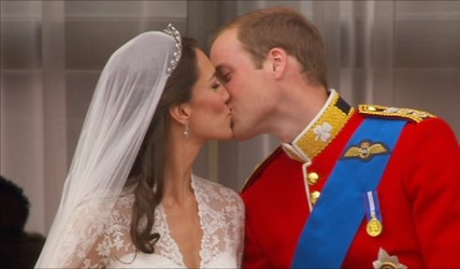Royal Wedding: Viewing figures, rise of the memes, and the first Generation Y monarch-to-be

Take down the bunting, the decorations and the Union Jack flags -- the wedding is over.
Whether you live in a republic and you elect your President and executive, or if you live in a monarchy where your head of state is hereditary, all but everyone wants to have filled the shoes of either/or yesterday.
You just try and deny it, why don't you. Even I was hit by a post-wedding depression, knowing full well that even though Princess Beatrice and Eugenie are still available for courtship, frankly that pretzel hat would get in the way.
Estimated to be the most filmed event of the millennium, it was viewed by just under half of the British population on television at around 24 million, with the BBC reporting around half a million watching the stream on their website. This figure does not include the estimated 1M people gathering around the Westminster to watch the procession in person.
Along with high-definition streams and gigapixel imagery showing extraordinary precision detail to the day, every second was detailed by an array of camera-phones, smartphones, tablets, digital cameras and television and broadcast media.
With an estimated 2 billion people worldwide, one-third of the global population, listening and watching the broadcast from their homes, the marriage of the Duke and Duchess of Cambridge as they are now known, was the biggest event to watch, to tweet, to blog and to Facebook for the Generation Y in living history.

It is believed that the wedding was not as watched as the funeral of Diana, Princess of Wales, as many of the Generation Y will still remember potent images of the day the procession was held.
It was, however, one of the first major events where interactive services and social media were used extensively to self-report, provide humorous commentary and deconstruct the minutiae of the day's events. Twitter in particular was hammered with tweets, hashtags and uploaded imagery to sites like YFrog and TwitPic.
To not see the fail whale once was astonishing, quite frankly.
From "the awkward moment when Prince William cant [sic] put the ring on Kate" to a hashtag on Twitter, "#QILF" -- which one should not necessarily go into, but it stands for "Queen I'd like to f...", knowing she will one day take the throne with her husband -- at least the world found the funny side to the day.
Even the BBC website crashed for a few moments, as many outside the United Kingdom struggled to grab another feed, either from YouTube or a knock-off relay site.
The effect that the Royal Wedding had on the Generation Y has never been seen on this scale. As with most things, opinion polls only give one side to the event, though as with any major event, the views and ratings will be polarised from supporting, to not supporting the notion of a monarchy.
But this wedding has, it seems, reinvigorated the passion and the near-requirement to keep the Royal family amongst the majoritive portion of Royal supporters and those neutral to opinion. Not only do they provide a great rate of return on tourism alone, royalty provides an aspiration to so many youngsters.
Australia, a fellow Commonwealth country, has for years been keen to shift away from the British monarchy to a republican system, with Prime Minister Julia Gillard holding personal views to that effect. It would be highly unlikely for a referendum on the standing of the Royal family to be conducted any time soon, however, especially in native England.
But generationally speaking, HM The Queen is of the War generation, and represented both her demographic and the younger Generation X or the "Baby Boomers" as a parental figure. As the age bracket shifted and the Generation Y entered the picture, we now have a younger monarch-to-be ("heir apparent") which has the power to redefine the monarchy in years to come.
While President Obama has a rockstar image to the younger generation, and the closest the United States came to a 'Royalty' like family figure to bring the country through good times and bad were the Kennedys, as my colleague Jason Perlow discussed with me, the wedding had America seemingly longing for wanting an age-old tradition back.
For all intents and purposes, it works for the British. Perhaps not you, America, but wedding fever seems to have you hampering for tradition and pomp you once lost. You have only your ancestors to blame.